Tahaa

Gryphon II
Chris and Lorraine Marchant
Wed 8 Sep 2010 07:45
|
After our successful visit to the derelict botanical
gardens, we treated ourselves to 2 memorable events on Tahaa.
We first of all joined our friends John and Chris from
Sara 2 for a night at the Taravara Yacht Club. This was billed as a traditional
night and began with a buffet of local dishes including poisson cru, the
excellent raw fish dish of French
Polynesia. After this interesting and tasty dinner there
was a demonstration of the numerous ways to put on a pareo, the rectangle of
cloth that both women and, less commonly, men wear. This was then
followed by a dance by a large extended local family which included some
energetic drumming accompanied by some equally energetic dancing. The finale,
after some half hearted attempts by the audience (including us) to imitate the
dancing, was a fire dance. This involved 2 boys of about 12 and 17 doing some
extremely impressive and dangerous spinning of fire sticks. Sadly I managed to
delete the photos that I took of these 2 young performers.
The following day we again teamed up with our friends
James and Lucy for a morning with Monsieur Alain Plantier, a Frenchman who came
to Tahaa 24 years ago by yacht and having first sailed to New Zealand came back
here to live. He began to do ethno botanical tours around the island when he
needed extra funds to buy a 4 wheel drive vehicle to get his children to
school. The first part of the tour was a walk around his garden that was
beautifully kept and full of the flowers and exotic trees we have come to know.
His home is in traditional Polynesian form with separate buildings for sleeping,
working, sitting and cooking with a dining area on a covered verandah.
All use traditional materials of plaited coconut leaves and fronds of
a cacti type plant, there was no glass just pull down shutters, no locks or
security measures even when they go on holiday.
The Plantiers have a vanilla plantation under the shade of
other trees and carefully explained the process of vanilla production from this
orchid plant. All vanilla grown outside of Mexico has to be pollinated by hand.
The bees that do the job in Mexico simply die if imported to Polynesia or
elsewhere in the world. The beans take 9 months to mature then have to be dried
for 3 - 6 months before they are ready. This is all a painstaking process
and we began to appreciate why vanilla is so expensive.
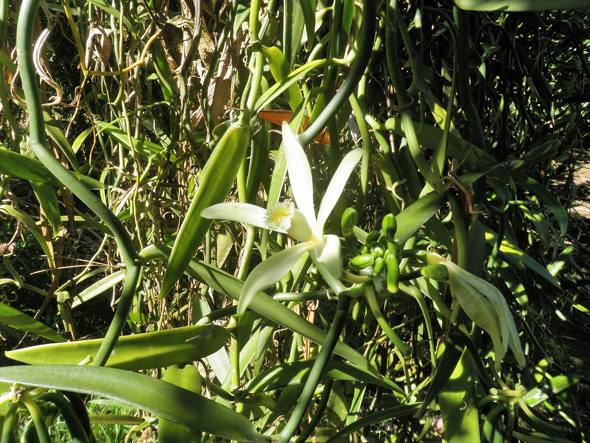 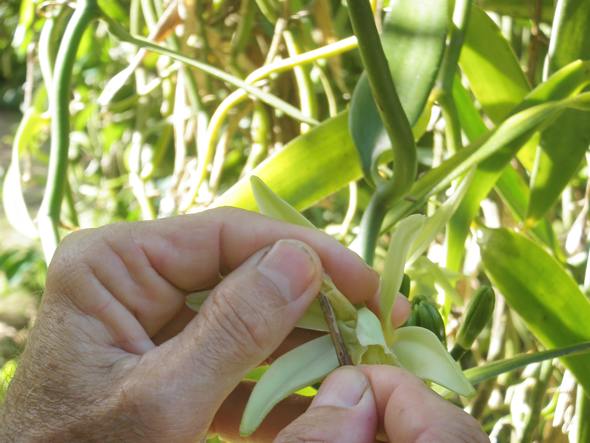 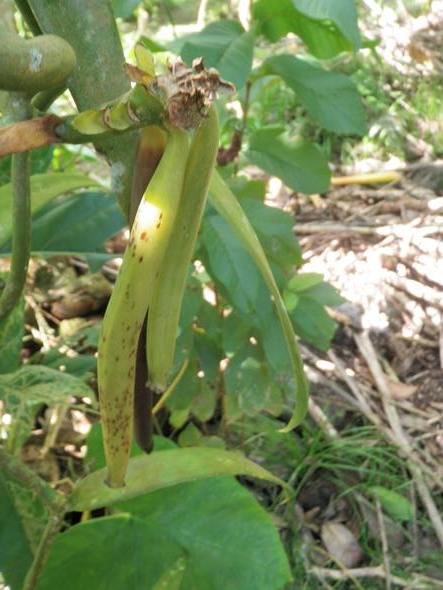 
The second part of the tour was a drive over the centre of
the island up a forest track to a good viewpoint across the bays that cut into
the island including Hurepiti Bay where Gryphon II was safely moored
to a buoy provided by M. Plantier.
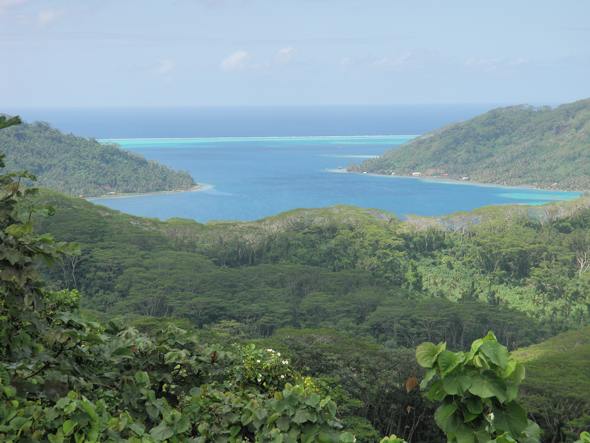 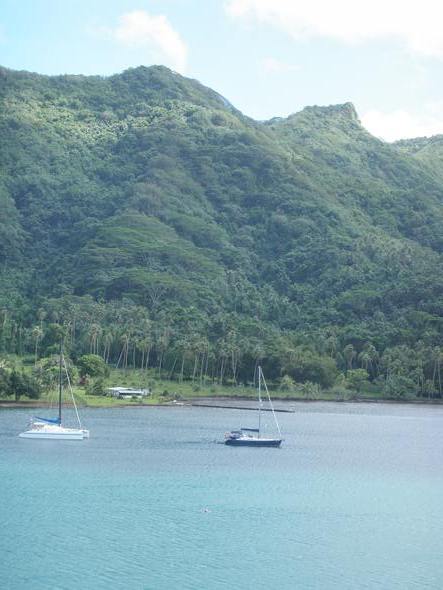 We made many stops where Alain showed and explained the
traditional use made of native plants. At one of the stops Alain cut a green
coconut for us to drink and then cleverly made a disposable plate and served up
some delicious pamplemousse with some rather sharp star fruit.
 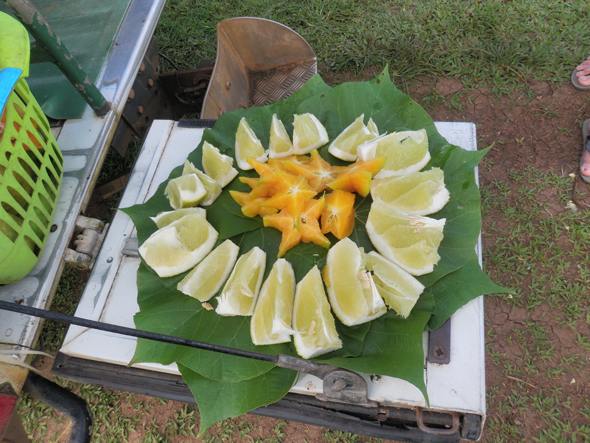 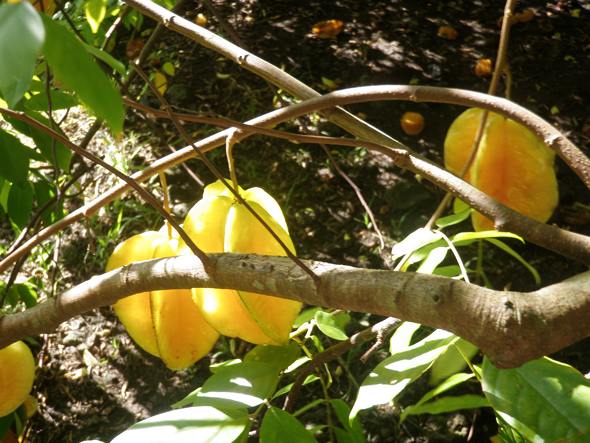 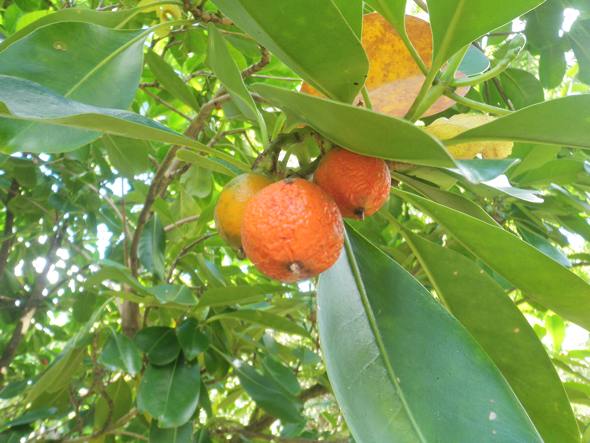 As we came down from the higher land there were more
fields growing taro, coconuts, and bananas....including a type of banana that we
had not seen before that grew ........upwards. Alain explained that research has
shown the stature and strong bones of the Polynesians to be the result of eating
their staple taro which is rich in calcium and other minerals. It was brought
with them during their migration to the islands nearly 2 centuries ago. Their
antecedents changed their staple to rice during taro failures and it is thought
they became smaller as a result.
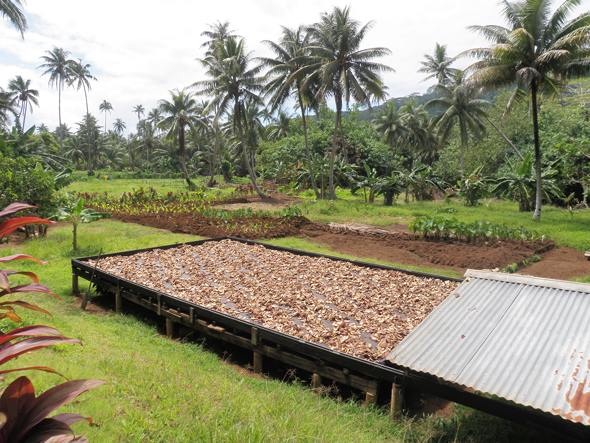 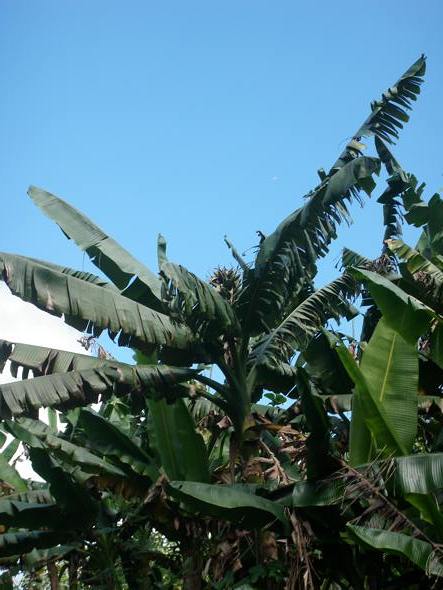 These 2 islands and the people that live here are a
great advert for French Polynesia and we can see why we met so many Europeans
and Americans who have decided to make it their home. On Raiatea we met a
Frenchman who had taught in the island for 20 years and then retired. The French
government award teachers who retire here 75% extra pension ....and no tax.
Any chance Mr Cameron?
|